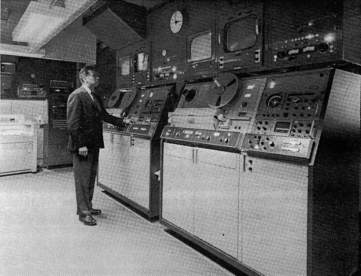VoloMedia announced today that it has been awarded what it calls the “patent for podcasting.” OK, whatever. Podcasting is so last Tuesday but the government takes a long, long time to approve these things so, what’s this all about. Turns out it was an application from 2003 that doesn’t even mention the word “podcasting” (because the word hadn’t been invented yet.) I think then it’s a bit disingenuous for the company to say it’s the patent for podcasting in the title of their announcement about it. It looks to me like they might be trying to make claims after the fact.
And who is this VoloMedia? I’ve been podcasting for three years. I speak at technology conferences about it. I’ve never heard of VoloMedia until today.
OK so what does the patent claim actually say? Here are the details from VoloMedia’s website. (See you on the other side of this quote. Don’t get lost on the way 😉
For reference, below are the claims issued under U.S. patent 7,568,213:
1. A method for providing episodic media, the method comprising: providing a user with access to a channel dedicated to episodic media, wherein the episodic media provided over the channel is pre-defined into one or more episodes by a remote publisher of the episodic media; receiving a subscription request to the channel dedicated to the episodic media from the user; automatically downloading updated episodic media associated with the channel dedicated to the episodic media to a computing device associated with the user in accordance with the subscription request upon availability of the updated episodic media, the automatic download occurring without further user interaction; and providing the user with: an indication of a maximum available channel depth, the channel depth indicating a size of episodic media yet to be downloaded from the channel and size of episodic media already downloaded from the channel, the channel depth being specified in playtime or storage resources, and the ability to modify the channel depth by deleting selected episodic media content, thereby overriding the previously configured channel depth.
2. The method of claim 1, further comprising automatically providing the user with an indication of the availability of updated episodic media via the channel dedicated to the episodic media in accordance with the subscription request.
3. The method of claim 1, further comprising synchronizing the updated episodic media automatically downloaded to the computing device associated with the user with a portable computing device communicatively coupled to the computing device associated with the user.
4. The method of claim 3, wherein synchronization of the updated episodic media automatically occurs in response to a predetermined user setting.
5. The method of claim 3, wherein synchronization of the updated episodic media occurs in response to a request received from the user.
6. The method of claim 1, wherein the updated episodic media is made available to users not associated with the computing device over a local area network.
7. The method of claim 1, wherein the automatic download is further based on a priority assigned to the channel.
8. The method of claim 3, wherein the channel dedicated to the episodic media is reduced in size during synchronization in order to fit available cache storage within the portable device.
9. The method of claim 1, wherein the channel dedicated to the episodic media is modified in size by removing one or more episodes of episodic media.
What a bunch of vague gobbly-gook. This patent claim could apply to iTunes, my DVR… heck it could even apply to Twitter and Facebook. There’s no mention of an RSS feed at all which is essential for a podcast. I don’t think this patent is enforceable but they could certainly cause trouble for a lot of people.
What’s happening here reminds me of what happened a hundred years ago to the emerging motion picture industry. Several companies got together and formed the “Edison Trust” and tried to control the industry with their patents. The “independents” as they were called (the ones shut out of the trust) moved to the west coast to get as far away from the trust as they could. They concentrated on story and longer feature length films that were easier to market. In the end “content” beat out the control of the technology.
So, what does it all mean? Tom Webster over at Edison research has some good thoughts. Leesa Barnes over at Marketing Fit weighs in as well. But all in all, Alex Lindsay from Pixel Corps may have said it best on twitter:
OK… whoever approved this at the Patent Office… I want my tax dollars back for your salary… youre an idiot.
Yep.

